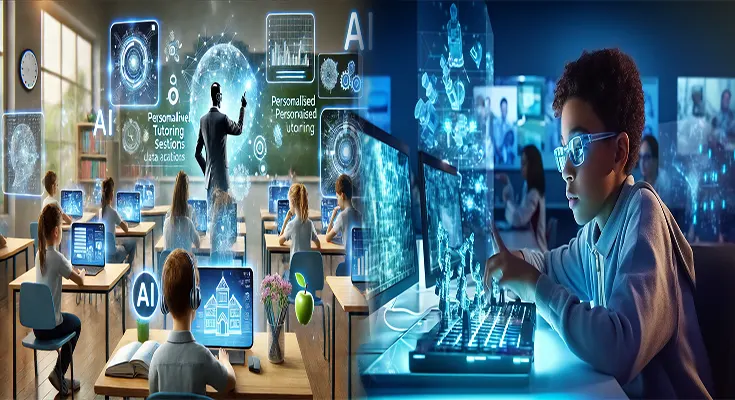As technology continues to advance at a rapid pace, the integration of artificial intelligence (AI) in education is becoming increasingly prevalent. AI has the potential to revolutionize the way we teach and learn, offering personalized, data-driven, and adaptive learning experiences for students. In this article, we will explore the role of artificial intelligence in shaping the future of classrooms.
Enhancing Personalized Learning Experiences
One of the key benefits of AI in education is its ability to provide personalized learning experiences for students. AI-powered platforms can analyze student data and behavior to tailor instruction to individual learning needs, preferences, and pace. By delivering content in a way that is best suited to each student, AI can help increase engagement, motivation, and ultimately, academic success.
Facilitating Data-Driven Decision Making
Another important role of AI in future classrooms is its capacity to generate valuable insights through data analysis. By collecting and analyzing data on student performance, behavior, and interactions, AI can help educators make informed decisions about instructional strategies, curriculum development, and resource allocation. This data-driven approach can lead to more effective teaching practices and better outcomes for students.
Supporting Teachers in Their Roles
AI can also play a crucial role in supporting teachers in their day-to-day responsibilities. From automating administrative tasks like grading and lesson planning to providing real-time feedback on student progress, AI tools can help teachers save time and focus on what matters most – facilitating meaningful learning experiences for their students. By leveraging AI technologies, teachers can become more efficient, effective, and responsive to the diverse needs of their students.
Fostering Collaboration and Engagement
In addition to individualized learning experiences, AI can also facilitate collaboration and engagement among students. By creating virtual learning environments, AI-powered platforms can promote teamwork, communication, and problem-solving skills in a digital setting. Through interactive simulations, adaptive quizzes, and collaborative projects, AI can foster a sense of community and connectivity among students, even in a virtual classroom setting.
The integration of artificial intelligence in future classrooms has the potential to revolutionize education by offering personalized learning experiences, facilitating data-driven decision making, supporting teachers in their roles, and fostering collaboration and engagement among students. While AI is not meant to replace human educators, it can enhance teaching and learning experiences by providing valuable insights, automating repetitive tasks, and adapting instruction to individual student needs. As we embrace the transformative power of AI in education, it is essential to prioritize ethical considerations, data privacy, and equitable access to ensure that all students benefit from the potential of AI in shaping the future of classrooms.





